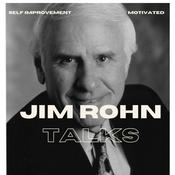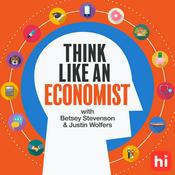37 episodes
- Is the climate transition really happening? If so, what does it look like in reality? Has its promises been broken? Who profits and who loses? Should the environmental movement actually resist climate transition, and how?
Dr Nicholas Beuret is Lecturer at Essex Business School, University of Essex. He joins Josh White to talk about his book Or Something Worse: Why We Need to Disrupt the Climate Transition (2025), published with Verso. They discuss the realities of the climate crisis for people in the UK today; the relationship between climate and the cost-of-living crisis; how 'the installation economy' is a far cry from the green jobs we were promised; the new spheres of accumulation forged in climate transition; and the need for a militant environmental movement and worker organising to disrupt its injustices.
'New Thinking in Political Economy' is a monthly podcast showcasing cutting-edge political economy research that helps us to understand the world around us.
This episode is produced by the SPERI Presents… committee, including Remi Edwards, Chris Saltmarsh, Josh White, Frank Maracchione, and Andrew Hindmoor. This episode was edited by Josh White and Chris Saltmarsh. Music and audio by Andy_Gambino. Hosted on Acast. See https://acast.com/privacy for more information.
Hosted on Acast. See acast.com/privacy for more information. - Who makes money out of football: broadcasters, clubs, players, or investment banks? Why are clubs selling their own assets to themselves? How do fans and players take collective action to resist the further financialisation of the sport? How important are local and foreign fans to the Premier League's boom? Is it inevitable that the Premier League will go bust?
Dr James Jackson is a Hallsworth Research Fellow in Politics at University of Manchester. He joins Dr Remi Edwards and Josh White to discuss his article 'A league made in the economy's image: destabilised stability and the English Premier League's Minsky moment' (2025) co-authored with Dr James Silverwood and published in British Politics journal. They discuss the basis of football's financialisation in Thatcherism, the enduring importance of fans in making and disrupting the 'product' of Premier League football, and what might cause the Premier League's bubble to burst.
Works cited in this episode include:
David Webber, ‘Playing on the break’: Karl Polanyi and the double-movement ‘Against Modern Football’ (2015)
Edwards & Jackson, The political economy of everyday life (2022)
Cox & Philippou, Measuring the resilience of English Premier league clubs to economic recessions (2022)
Kennedy & Kennedy, Towards a Marxist political economy of football supporters (2010)
'New Thinking in Political Economy' is a monthly podcast showcasing cutting-edge political economy research that helps us to understand the world around us.
This episode is produced by the SPERI Presents… committee, including Remi Edwards, Chris Saltmarsh, Josh White, Frank Maracchione, and Andrew Hindmoor. This episode was edited by Remi Edwards, Josh White and Chris Saltmarsh. Music and audio by Andy_Gambino. Hosted on Acast. See https://acast.com/privacy for more information.
Hosted on Acast. See acast.com/privacy for more information. - How important is exploitation in the organisation of global supply chains? How do they drive geopolitical conflict and ecological destruction while depressing wages? How does the capitalist state drive and uphold capitalist accumulation? What does US-China rivalry mean for value chains?
Benjamin Selwyn is Professor of International Relations and International Development at University of Sussex. He joins Dr Remi Edwards to discuss his new book Capitalist Value Chains: Labour Exploitation, Nature Destruction, Geopolitics (Oxford University Press, 2025), co-authored with Christin Bernhold. They consider the limitations of mainstream 'global value chains' literature; how critical approaches draw stronger connections between geopolitics, labour exploitation and environmental destruction; the role of the state in reproducing the domination of labour by capital; and visions for an alternative plant-based food system organised according to need, not profit.
'New Thinking in Political Economy' is a monthly podcast showcasing cutting-edge political economy research that helps us to understand the world around us.
This episode is produced by the SPERI Presents… committee, including Remi Edwards, Chris Saltmarsh, Frank Maracchione, Emma Mahoney, and Andrew Hindmoor. This episode was edited by Remi Edwards and Chris Saltmarsh. Music and audio by Andy_Gambino. Hosted on Acast. See https://acast.com/privacy for more information.
Hosted on Acast. See acast.com/privacy for more information. - How important is exploitation in the organisation of global supply chains? How do they drive geopolitical conflict and ecological destruction while depressing wages? How does the capitalist state drive and uphold capitalist accumulation? What does US-China rivalry mean for value chains?
Benjamin Selwyn is Professor of International Relations and International Development at University of Sussex. He joins Dr Remi Edwards to discuss his new book Capitalist Value Chains: Labour Exploitation, Nature Destruction, Geopolitics (Oxford University Press, 2025), co-authored with Christin Bernhold. They consider the limitations of mainstream 'global value chains' literature; how critical approaches draw stronger connections between geopolitics, labour exploitation and environmental destruction; the role of the state in reproducing the domination of labour by capital; and visions for an alternative plant-based food system organised according to need, not profit.
'New Thinking in Political Economy' is a monthly podcast showcasing cutting-edge political economy research that helps us to understand the world around us.
This episode is produced by the SPERI Presents… committee, including Remi Edwards, Chris Saltmarsh, Frank Maracchione, Emma Mahoney, and Andrew Hindmoor. This episode was edited by Remi Edwards and Chris Saltmarsh. Music and audio by Andy_Gambino. Hosted on Acast. See https://acast.com/privacy for more information.
Hosted on Acast. See acast.com/privacy for more information. - Does China’s unique party-state capitalist political economy model hold the key for global climate transition? Can the Chinese Communist Party (CCP) translate its success in expanding green energy technology to the destruction of the fossil fuel industry? What does China’s idea of ecological civilisation offer that Western notions of green capitalism do not? How should activists in the West respond to the rise of China amid the climate crisis?
Chris Saltmarsh is a postgraduate researcher at University of Sheffield and the executive producer of SPERI Presents… He joins Dr Remi Edwards to discuss his paper ‘The Chinese Road to Decarbonisation: Chinese Party-State Capitalism in the Political Economy of Fossil Energy Phase-Out’ recently published in Review of International Political Economy. They discuss the relationship between green energy build-out and fossil energy phase-out; the basis of China’s development in socialist revolution; whether China’s unique political economy affords it greater potentiality to phase-out fossil fuels; and both the practical challenges and theoretical implications of achieving such an undertaking.
Publications discussed also include Cheek’s Xi Jinping’s Counter-Reformation: The Reassertion of Ideological Governance in Historical Perspective, Ban and Hasselbalch’s Green economic planning for rapid decarbonisation, Gabor and Braun’s Green macrofinancial regimes, Huber’s Theorizing the subterranean mode of production, and Malm’s Fossil Capital.
'New Thinking in Political Economy' is a monthly podcast showcasing cutting-edge political economy research that helps us to understand the world around us.
This episode is produced by the SPERI Presents… committee, including Remi Edwards, Chris Saltmarsh, Frank Maracchione, Emma Mahoney, Dillon Wamsley and Andrew Hindmoor. This episode was edited by Remi Edwards and Chris Saltmarsh. Music and audio by Andy_Gambino. Hosted on Acast. See https://acast.com/privacy for more information.
Hosted on Acast. See acast.com/privacy for more information.
More Education podcasts
Trending Education podcasts
About SPERI Presents...
'SPERI Presents…' is a podcast taking on the big questions in political economy for scholars, students and publics within and beyond the discipline.We also host 'New Thinking in Political Economy', an ongoing series with monthly episodes. Dr Remi Edwards is joined by authors of new research to explore the motivations behind, contributions and implications of their work for understanding power and politics in the global economy.The first limited series was 'Lessons in Power'. Professor Michael Jacobs and Mems Ayinla interview ministers and advisors from the New Labour administration (1997-2010) to tease out lessons on a range of issues for Keir Starmer’s newly formed Labour government.Coming soon: Crisis Point hosted by Chris Saltmarsh and Dr Dillon Wamsley. Hosted on Acast. See acast.com/privacy for more information.
Podcast websiteListen to SPERI Presents..., JIM ROHN and many other podcasts from around the world with the radio.net app

Get the free radio.net app
- Stations and podcasts to bookmark
- Stream via Wi-Fi or Bluetooth
- Supports Carplay & Android Auto
- Many other app features
Get the free radio.net app
- Stations and podcasts to bookmark
- Stream via Wi-Fi or Bluetooth
- Supports Carplay & Android Auto
- Many other app features


SPERI Presents...
Scan code,
download the app,
start listening.
download the app,
start listening.






































